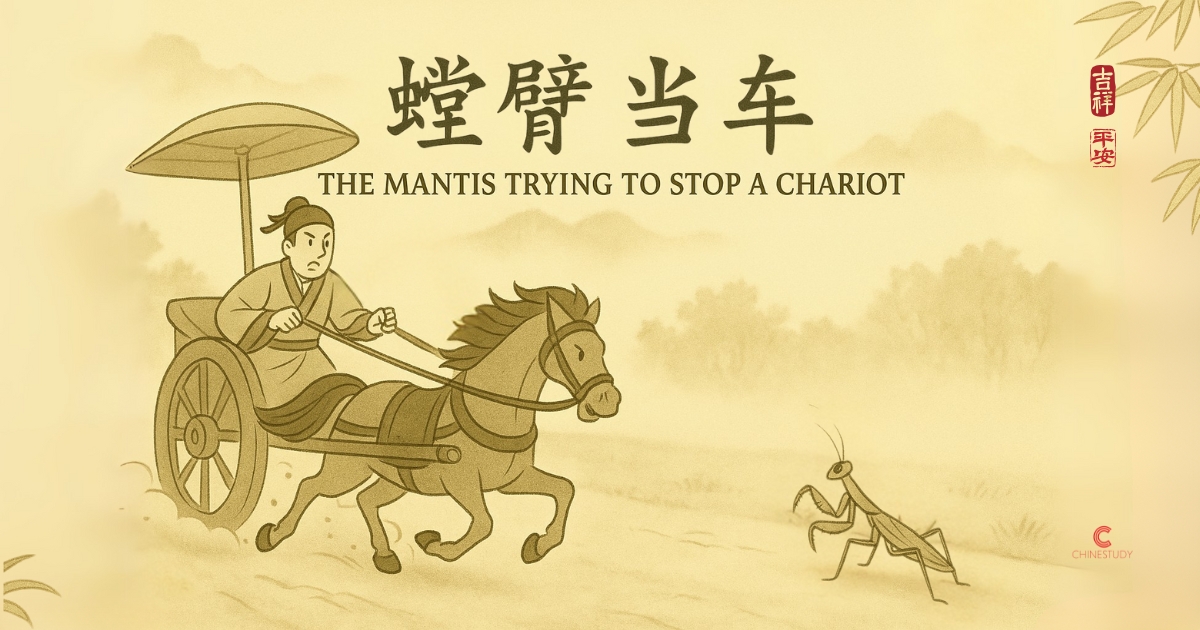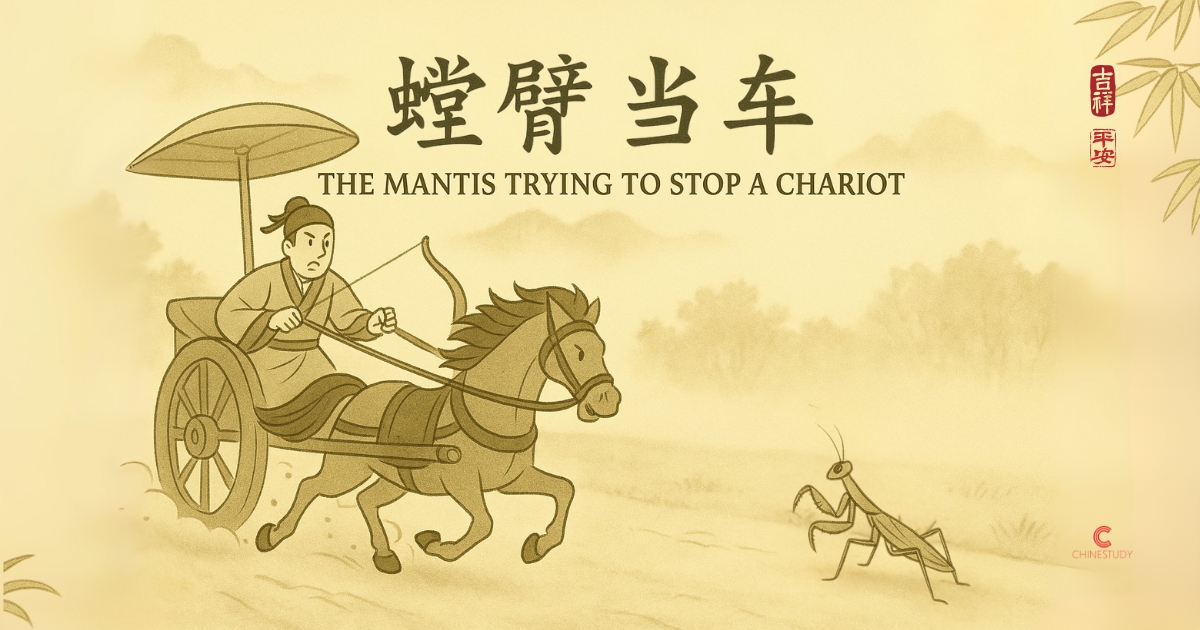🛑 螳臂当车 táng bì dāng chē – The Mantis Trying to Stop a Chariot

🔍 What It Means
螳臂当车 (táng bì dāng chē) literally means “a mantis blocks a chariot with its arms.”
Word-for-word:
- 螳 (táng) – mantis
- 臂 (bì) – arm
- 当 (dāng) – to block, to face
- 车 (chē) – chariot or cart
It means: someone tries to stop something far more powerful — overestimating their ability, often with foolish courage.
In English, it’s like saying:
- 🐜 “A fool rushes in”
- 🚧 “Stopping a train with your hand”
- 🛡 “Bravely stupid” or “Fighting a losing battle”
🏺 Where It Comes From
In ancient times, a minister saw a praying mantis trying to block a fast-moving chariot with its tiny arms.
He admired its spirit — but also saw its foolishness.
This inspired the idiom:
螳臂当车 – “A mantis trying to block a chariot”
It became a metaphor for:
Someone who dares to challenge something way beyond their strength.
💬 How to Use It
Use 螳臂当车 to describe:
- Someone taking on a powerful force they clearly can’t stop
- A brave but hopeless attempt
- Overestimating your own strength or influence
❌ Tone: Usually negative or mocking
⚠️ Can carry sarcasm or warning
✅ Common in debates, politics, leadership, or protests
🎯 Real Examples
1. 他一个人反对整个计划,简直是螳臂当车。
- Tā yí ge rén fǎn duì zhěng gè jìhuà, jiǎnzhí shì táng bì dāng chē.
- 👉🏻 He opposed the entire plan alone — it was like a mantis blocking a chariot.
2. 小公司挑战全球巨头,怕是螳臂当车。
- Xiǎo gōngsī tiǎozhàn quánqiú jùtóu, pà shì táng bì dāng chē.
- 👉🏻 A small company challenging a global giant? That’s a mantis versus a chariot.
⚠️ Common Mistakes (Watch Out!)
- ❌ Mistake: Mistaking it as a compliment — it’s not heroic courage, it’s unrealistic defiance
- ✅ Correct: Use it when someone is clearly outmatched
💡 Memory Tip

Picture this:
A chariot charges down the road — wheels thundering.
A little mantis raises its arms, trying to stop it.
😬 It doesn’t end well.
That’s 螳臂当车 — brave, yes… but foolish.
🧩 Interactive Practice
Translate this sentence into English:
- 他以为能阻止政府的新政策,结果只是螳臂当车。
Answer:
He thought he could stop the government’s new policy, but it was just a mantis trying to block a chariot.
🌟 Final Thoughts
Sometimes courage is wise.
Sometimes… it’s just a mantis facing a chariot.
💭 Ask yourself: Am I being bold — or blind to reality?
👉 Love this? The next idiom’s waiting here
Thank you for subscribing!
Have a great day!